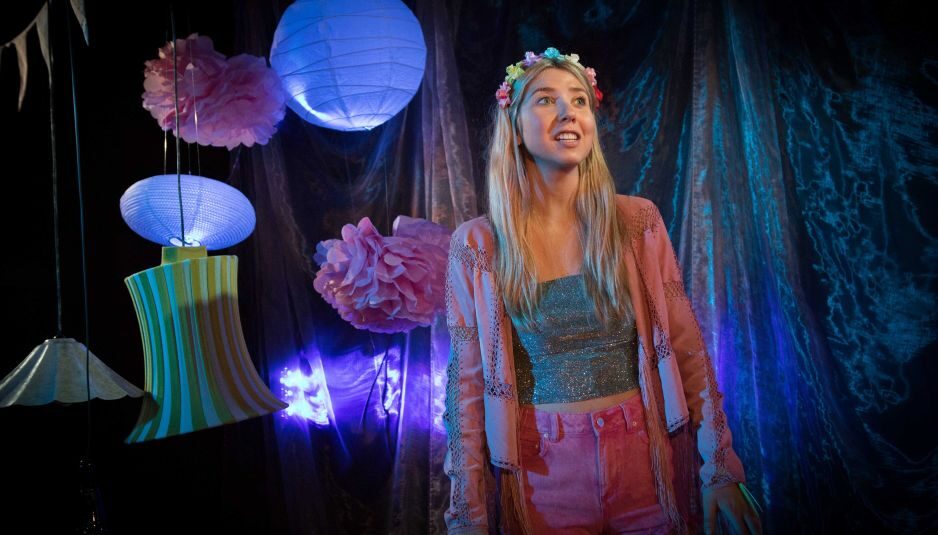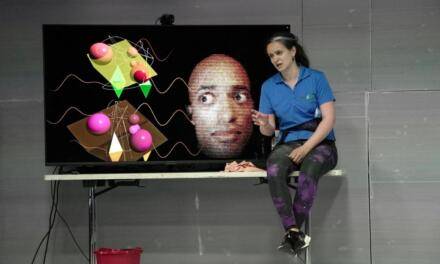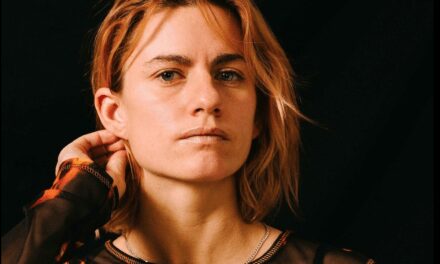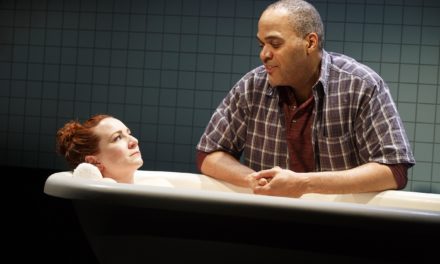It’s been a busy twelve months for Dublin actor, writer, producer and theatre-maker Ali Hardiman. She’s seen her star rise, and has become one of the most feted forces on Ireland’s theatre scene. She is the creative energy behind the much lauded production Electric. When we meet, this recent recipient of the Creative Ireland Bursary is bubbling with enthusiasm and more than eager to detail the highs and lows of her busy career to date.
Ali has always been interested in the various aspects of the stage. She attended drama school from an early age, and describes a childhood littered with half-filled notebooks of stories she would invent. “My Mum will still ring me up to tell me she’s found another one,” she laughs. The narratives she penned were often magical, and always about orphans (sensible parents always get in the way of a good story). The tug between writing and acting continued, until “acting came out on top”.
Ali was studying performance at the Gaiety School of Acting when it was finally revealed to her that she could both write and act her own material. She took one module that proved of particular significance; Manifesto was a course wherein students had to prepare and perform their own three-minute theatre pieces In front of their peers. This module proved an epiphany pivotal in Ali’s career and fostered her urge to write and act. The Manifesto module had much emphasis on peer feedback, “the criticism was really important” she says, “you couldn’t just say ‘Oh, I liked that’ and not say anything else. Your feedback had to be constructive”. Ali found this approach fruitful and it was this specific supportive and collaborative aspect that encouraged Ali to explore devised theatre. In this vein, aware of the need to be influenced by and to contribute to all that is presently feeding the Irish theatre scene, Ali tries to go and see “everything that’s on in [Dublin] at least once”. This exercise can be challenging, with productions large and small appearing in venues scattered across the city, but Ali realizes that it is imperative that she does so in order that she grows as an artist and remains relevant and engaged in Irish theatre.
The launchpad for Hardiman’s visibility was the play Electric. Written by Hardiman, and in which she and her fellow Bow Street graduate Erika Roe perform, it tells the story of two girls from opposite sides of the Dublin class divide, and what happens when their worlds collide at the Electric Picnic music festival. For Ali, the project came out of a longstanding curiosity about other people’s lives and Ireland’s class structure, which is often unrecognized. Electric began in the Theatre Upstairs in Dublin, before going on a tour of Ireland and the UK. This tour culminated in a run at the Edinburgh Fringe Festival 2019. The play has garnered a lot of positive press, with glowing reviews from both critics and audiences alike. From the success of Electric, Hardiman has also come to the attention of some well-known names in the theatre world. The playwright David Ireland was impressed upon catching the show in Edinburgh, much to Ali’s delight.
Touring with a play so specifically about Dublin came with its own challenges. I was curious as to how audiences in Edinburgh reacted to a play like Electric, which relies heavily on an understanding of the social dynamics of Dublin and employs the Irish capital’s distinctive patois. By Hardiman’s own admission, it didn’t always connect with the non-Irish audience, and there were times when it was hit or miss. However, the production provided glossaries to aid audience understanding. Perhaps with some self deprecation, Hardiman holds that the production was further helped by having it run at The Underbelly, one of the most well-known venues on the Fringe circuit in the city, “we didn’t have to explain to people, “go down this little alley”. Thus, she fells venue’s reputation was a bonus in terms of marketing. That said, being in one of the most famous venues for the Edinburgh Fringe presented its own set of problems, not least the tight turnaround time. “We had a fifteen minute set up time before each performance.” This hectic routine was made easier by the set design of Ursula McGinn. She designed a suitable portable set, which could be adapted to each new environment.
Ali returned from Edinburgh and immersed herself in her new residency with the Dublin Fringe. It’s a job which she says elicits mostly confusion from her non-acting friends. “They think I work for the three weeks or so a year of the Fringe Festival, and that’s it,” she jokes. Her work with the Dublin Fringe Festival is something she finds extremely rewarding, the Fringe staff providing support and nurturing to new theatre creators through the Fringe:Lab programme. As well as this, there is the matter of the Creative Ireland Bursary, which is structured as a four session mentorship scheme. Ali Hardiman applied at the suggestion of dramaturg and theatre writer, Pamela McQueen. Under her guidance, Hardiman is working on a new script. Among other things, the experience has taught her some of the practical limitations of writing for theatre.
“In the first draft, I wanted the full set of a gameshow, like a proper, 1970s gameshow. But it would come and go. When I brought it to Pamela, she just looked at it, and told me to rethink it, or else we’d have half the stage that wasn’t in use most of the time.” These constraints have their uses, she admits.
Hardiman is not one to settle, and although at the time of meeting, she still has one or two sessions left with McQueen, she’s already looking forward to 2020, and the next project she has lined up. In January, she has been invited by the Abbey Theatre to take part in their 24 Hour Play event, which raises funds for the Dublin Youth Theatre. Hardiman is both honored and excited to have been asked to take part. The 24 Hour Play event is one which she has long been interested in, and the chaos and energy of the endeavors is one which she looks forward to. As well as that, there is of course, the small matter of getting her work performed on the Abbey Stage, an experience coveted by many Irish playwrights.
Beyond that, Hardiman is somewhat coy. She has a screenplay “in development” with Screen Ireland, although as she says herself, this foray into the world of film does not spell the end of her theatre time. Theatre is still something she feels passionately about, and that she has a lot to learn about. Her favorite bit of advice about the difference? “Film is what you think, theatre is what you say.”
This post was written by the author in their personal capacity.The opinions expressed in this article are the author’s own and do not reflect the view of The Theatre Times, their staff or collaborators.
This post was written by Síofra Ní Shluaghadháin.
The views expressed here belong to the author and do not necessarily reflect our views and opinions.


















